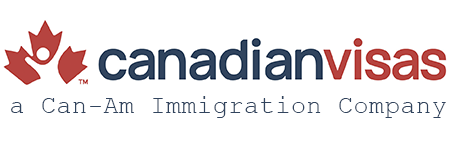
Nov 7, 2022 | Canadian Experience Class, Featured, Immigrate to Canada, In the News, New Immigration Programs, Permanent Residency, Working In Canada
Start-up Visa Program For Entrepreneurs
What is the Start-Up Visa Program?
Canada’s Start-up Visa Program targets immigrant entrepreneurs with the skills and potential to build innovative businesses in Canada that can create jobs for Canadians and compete on a global scale.
Want to dive deeper into this program? Find out more here.
Why choose Canada?
There are many reasons why Canada is the best place to build your business as an entrepreneur. Canada’s advantages include:
- A strong economy
- Low taxes and low business costs
- Excellence in research and innovation
- High quality of life
In addition, there are more than 50 Canadian venture capital funds, angel investor groups, and business incubators designated to participate in the program.
Last but not least, entrepreneurs who participated in the program in the first 3 years received over $3.7 million in investment capital from designated entities to help them grow their businesses in Canada.
What are the requirements of this visa for entrepreneurs?
There are four requirements you need to meet to be eligible for a Canadian start-up visa:
- Prove your business is supported by a designated organization
- Meet ownership requirements: You must hold at least 10% of the voting rights attached to all shares of the company. Together with the designated organization, you must hold at least 50% of the voting rights attached to all shares of the company.
- Meet the minimum language requirements (CLB 5 in all areas) in English or French; and
- Show sufficient funds to settle in Canada.
Not sure if you qualify? Don’t know where to start?
If you are still in doubt that whether the Start-Up Visa Program in Canada is for you, take our free online assessment to determine your eligibility. .is super important
Or contact us today! One of your licensed immigration consultants will be happy to help you.

Apr 15, 2021 | Canadian Experience Class, Featured, Immigrate to Canada, In the News, New Immigration Programs, Permanent Residency, Working In Canada
New Immigration Programs Pave Way for Health Care and Essential Workers
Exciting news! The Honourable Marco E. L. Mendicino on on April 14th, 2021 announced that there will be a focus on new pathways for temporary workers in healthcare, essential workers, and international graduates who are already residing in Canada.
“The pandemic has shone a bright light on the incredible contributions of newcomers. These new policies will help those with a temporary status to plan their future in Canada, play a key role in our economic recovery and help us build back better. Our message to them is simple: your status may be temporary, but your contributions are lasting—and we want you to stay.” Says Mendicino.
Effective May 6th 2021, Immigration, Refugees and Citizenship Canada (IRCC) will launch 6 new pathway streams for permanent residency for over 90,000 health care, essential workers and international graduates who have been actively contributing to Canada’s economy. Including the French-speaking temporary residents, these workers and graduates who are already in Canada possesses the skills and experienced needed to fight through the pandemic and to accelerate Canada’s economic recovery. These new streams will pave the way for thousands of new immigrants to receive Canadian permanent residence status.
IRCC will be accepting applications through the following 3 streams:
- 20,000 applications for temporary workers in health care
- 30,000 applications for temporary workers in other select essential occupations
- 40,000 applications for international students who graduated from a Canadian institution
To be eligible for the three new streams announced, temporary workers must have at least one year of Canadian work experience in a health-care profession or in select essential occupations. International students must have completed an eligible Canadian post-secondary education within the last 4 years, no earlier than January 2017. All workers and graduates will need to meet the language proficiency of at least CLB 4 in English or French and the test results must be no less than two-year-old when application is received.
To promote Canada’s official languages, three additional streams with no application cap for healthcare workers, essential workers and international graduates who are French-speaking or bilingual in English and French. Candidates will need to meet the same requirements for the health-care, essential occupations and graduates in addition to French language proficiency of at least CLB 4 and the evaluation must be no less than two years old when the application is received.
The 6 new streams will remain open until November 5th, 2021, or until they have reached their application cap (not including the French-speaking or bilingual candidate applicants). The announcement of these new streams aims to help achieve Canada’s 2021 immigration Level’s plan, which is expected to welcome 401,000 new permanent residents. The plan will help create jobs and drive long-term growth in Canada. We have already seen the historical federal drawing which invited all 27,332 candidates in the Canadian-Experience Class Express Entry pool. Canada has welcomed over 50,000 new permanent residents thus far.
Need help or want to find out if you qualify?
Call our office today for a Free Consultation.

Jun 18, 2019 | Caregiver Program, Complete Representation, Featured, Immigrate to Canada, In the News, New Immigration Programs, New Laws, Temporary Foreign Workers, Work Permits, Working In Canada
New Caregiver Programs take effect today. Immigration, Refugees and Citizenship Canada (IRCC) has made changes to the In-Home Caregiver Program. These changes affect how employers hire caregivers and what is required as part of the approval process for both employers and caregivers. As of June 18, 2019 employers who are hiring caregivers from overseas are no longer required to submit an Labour Market Impact Assessments (LMIA) application for approval. Any LMIA application that was submitted on or before June 17, 2019 will continue to be processed and work permits for those caregivers will still continue to process as well. Caregivers who are currently in Canada on work permits that require extensions or those that are changing employers will require new LMIAs and new work permits.
There are now 2 new caregiver streams to consider when applying to hire a caregiver from overseas. Employers should consider starting early as it is expected to take about 12 months for a caregiver to arrive in Canada on a work permit.
Home Child Care Provider pilot (NOC 4411)
Home Support Worker pilot (NOC 4412)
General Program Requirements for Employers and Caregivers
- Employers will need to complete the job offer form
- Caregivers will need to submit an application for permanent residence along with a work permit application
- Caregivers can also apply for their spouses and children to accompany them to Canada and can obtain open work permits and study permits
- Caregivers must meet the eligibility criteria before applying for permanent residence, if eligible they will receive work permits to come to Canada
- Work permits will be valid for 3 years and will give the caregiver the opportunity to complete 24 months of full-time work as a caregiver
- Processing time can take up to 1 year for work permits to be issued.
- After the caregiver completes 24 months of work he/she will need to submit proof and their PR application will be finalized.
These new applications will require careful preparation by an authorized representative. It is strongly recommended that caregivers hire an authorized representative to ensure that their application will qualify and that they will achieve their goal of work permits and then eventually permanent residency in Canada.
For all inquiries, questions or concerns regarding these changes, please give us a call at +1-416-665-3939 or from inside Canada toll-free 1-888-808-7338.

Feb 7, 2018 | Caregiver Program, Immigrate to Canada, In the News, Work Permits
This has come to us as a surprise. Immigration, Refugees and Citizenship Canada (IRCC) announced that they will no longer be accepting applications for the Caring for Children Program or the Caring for People with high Medical Needs Program. While the Canadian government did not formally make this announcement, the notice appears in regular text on the IRCC website. These two programs replaced the previous Live-In Caregiver Program (LICP) on November 29, 2014 and while the programs were a replacement, they were a pilot-project with a lifespan of 5 years, expiring on November 29, 2019.
Caregivers who will not complete 24 months of full-time work experience before November 29, 2019 will not be eligible to apply for permanent residence. As always, the federal government will now review the two programs and determine what they will do – either get rid of them completely, renew them or replace them with a different but similar program. It is very likely that an announcement will be made well before the expiration date of November 29, 2019.
Of course, many caregivers in Canada and abroad are confused, upset and were caught off guard by the news. Fear has spread throughout the caregiver community that this might just very well be the end of the caregiver program. The need for childcare and elderly care in Canada is well-known and there is a shortage in Canada. This unique one-of-a-kind program attracts caregivers from around the world whereby they leave their families and children behind to care for Canadian families. They make this sacrifice because of better employment prospects and wages in Canada.
Despite the uncertainty, it is believed that caregivers will continue to come to Canada in hopes for a chance to become permanent residents.
Caregivers who will complete their 24 months can contact our office for assistance with their application for permanent residence. We encourage those who meet the requirements to retain the services of an immigration representative to ensure their application is submitted properly to avoid disappointments, as this can be one of the only chances to get it right! Call our office at 416-665-3939 or toll-free 1-888-808-7338.

Jul 28, 2017 | Business Immigration, Immigrate to Canada, In the News, Investor Immigration, New Immigration Programs, Permanent Residency
The Start-Up Visa Program, which was launched in April 2013, invites immigrant entrepreneurs to bring their business to Canada. The program allows entrepreneurs to obtain permanent residence for themselves and their family. This pilot program was aimed at attracting pioneering foreign entrepreneurs who would contribute to the Canadian economy. After evaluation of the pilot, it has been determined that the Start-Up Visa Program is delivering on its goals to bring innovative companies into Canada, which in turn creates more jobs for middle-class Canadian workers in a range of industries. With the success of the pilot, the government has announced that it will make the Start-Up Visa Program a permanent part of the immigration landscape for 2018.
As of July 15, 117 principal applicants have received permanent residence through the Start-Up Visa Program. This represents 68 start-ups that were launched in Canada as a result of this program. At present, there are more than 50 Canadian venture capital funds, angel investor groups, and business incubators designated to participate in the program. Entrepreneurs who participated in the program in the first 3 years received over $3.7 million in investment capital from designated entities to help them grow their business in Canada.
Innovative entrepreneurs who wish to apply for permanent residence through the Start-Up Visa Program must meet the following minimum eligibility requirements.
- Prove your business is supported by a designated organization;
- Show your business meets ownership requirements;
- Meet the minimum language requirements (CLB 5 in all areas) in English or French; and
- Show sufficient funds to settle in Canada;
If you have an innovative business idea, you may be able to bring this idea with you to Canada. Take our free online assessment to determine your eligibility or contact us today to speak with a licensed immigration consultant.

Jul 19, 2017 | Blog, Immigrate to Canada, Immigration, In the News, Permanent Residency, Skilled Workers, Spousal Sponsorship, Student Visas, Work Permits, Working In Canada
There are many reasons why a person would choose to immigrate to Canada. Some people immigrate in hopes of living a better life and/or to give their children opportunities that may not be so readily available in their country. Some people immigrate because they live in a war-torn country and they fear for their safety and that of their family. Others have family already in Canada and they want to be close to them. Some people choose to immigrate to Canada with their spouse or partner. This process is called Spousal Sponsorship. Then there are those who come to Canada to gain valuable education and/or work experience.
When it comes to quality of life, Canada has most other countries beat. In fact, Canada was ranked #2 best country in the world and #1 in education. Just to compare, the US was ranked 7th best country and 7th in education. Canadians are also “the 6th happiest people in the world, while Americans lag behind at 13th.” And there is a reason why Canadians are so happy. They have universal healthcare, for one. And, relative to other countries, Canada has easier access to education / cheaper degrees, higher press freedom, higher economic freedom, and better prison and justice systems. Canadians also live longer, work less hours, take more days off, and earn more money than Americans. Wow. It’s true. The American dream has moved north.
Let’s talk about immigration policy. The main issue to consider here is that Canadian provinces, unlike US states, have the ability to set immigration policy. Immigration in Canada is a joint effort between the federal and provincial governments. Canada has a program called the Provincial Nominee Program (PNP), which allows provinces to choose who they bring in based on economic need. The PNP helps individuals and their families to apply for permanent residence based on set criteria developed by the individual provinces. This is good both for the immigrant, whose application for PR is fast-tracked by a provincial nomination, and for the province, as they are able to bring in workers to meet labor market demand. While many of Canada’s immigration programs focus on skilled worker immigration, the PNP allows provinces to select workers in any occupation, including low or no-skilled occupations, to meet the labor demands of the province. So, if you find yourself to not be eligible for any other economic immigration program, you may find success in one of the Provincial Nominee Programs.
Overall, Canada’s immigration policy is far superior to that of the United States. Canada welcomes immigrants based on merit, which means that individuals who receive permanent residence in Canada are typically well educated and highly skilled. Immigration to Canada is also easier and faster than US immigration for many people. So, if you are a young professional looking for better opportunities in a beautiful country, Canada might just be the best place to go. Or if you are a businessman or woman looking to expand your business or set up a new business, Canada is a great place to do this. Whatever your reasons are, our team of qualified immigration consultants can assist you with all of your immigration needs. To start, take our free online assessment and find out if you qualify for one of Canada’s many immigration programs. If you have any immigration questions, contact us for a consultation today.







 Useful Resources for Canada
Useful Resources for Canada
 Useful Resources for U.S.
Useful Resources for U.S.
 Our Local Immigration Services
Our Local Immigration Services